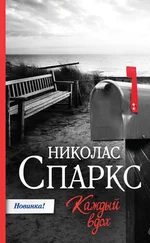In this, I know she is right.
“I was devastated when Daniel went away. I would have loved for him to become part of our lives. And yes, I was sad that we never had children. But I was also sad because I was in my forties, even though that might not make sense to you. I did not mind my thirties. That was when I felt for the first time in my life that I was actually an adult. But for women, older than forty is not always so easy. On my birthday, I couldn’t help but think that I had already lived half my life, and when I looked in the mirror, a young woman no longer stared back at me. It was vain, I know, but it bothered me. And my parents were getting older, too. That was why I went to visit them so often. By then, my father had retired, but he was not well, as you know. It was difficult for my mother to take care of him. In other words, there was no simple way to make things better for me back then. Even if Daniel had stayed with us, those still would have been hard years.”
I wonder about this. She has said as much to me before, but I sometimes question whether she is being completely truthful.
“It meant a lot to me when you held me that night.”
“What else could I do?”
“You could have turned and walked back to the bedroom.”
“I could not do such a thing. It hurt me to see you like that.”
“You kissed my tears away,” I said.
“Yes,” she says.
“And later, we held each other as we lay in bed. It was the first time in a long time.”
“Yes,” she says again.
“And things started to get better again.”
“It was time,” she said. “I was tired of being sad.”
“And you knew how much I still loved you.”
“Yes,” she says. “I always knew that.”
In 1964, on our trip to New York, Ruth and I experienced a second honeymoon of sorts. It wasn’t planned, nor did we do anything extraordinary; it was more akin to a daily celebration that we had somehow put the worst of the past behind us. We held hands as we toured the galleries and began to laugh again. Her smile, I still believe, had never been more contagious in its joy than it was that summer. It was also the summer of Andy Warhol.
His art, so commercial and yet unique, didn’t appeal to me. I found little interest in paintings of soup cans. Nor did Ruth, but she was taken with Andy Warhol at their initial meeting. I think this was the only instance in which she bought something simply due to the force of the artist’s personality. She knew intuitively that he would somehow be an artist who would define the 1960s, and we purchased four original prints. By then, his work had already become expensive – it’s all relative, of course, especially when considering their value now – and afterward, we had no money left. After only a week up north, we returned to North Carolina and went to the Outer Banks, where we rented a cottage at the beach. Ruth wore a bikini that summer for the very first time, though she refused to wear it anywhere except on the back veranda, with towels draped over the railing to block others’ sight lines. After our trip to the beach, we journeyed to Asheville, as always. I read her the letter I’d written as we stood by the lake, and the years continued to roll along. Lyndon Johnson was elected president and the civil rights law was passed. The war in Vietnam picked up steam, while at home we heard much about the War on Poverty. The Beatles were all the rage, and women entered the workforce in droves. Ruth and I were aware of all of it, but it was life inside our home that mattered most to us. We led our lives as we always had, both of us working and collecting art in the summers, having breakfast in the kitchen, and sharing stories over dinner. We bought paintings by Victor Vasarely and Arnold Schmidt, Frank Stella and Ellsworth Kelly. We appreciated the work of Julian Stanczak and Richard Anuszkiewicz and bought paintings by them as well. And I will never forget Ruth’s expression as she picked out every one.
It was around that time that we began to make use of our camera. Until that point, strangely, it had never been a priority for us, and in the long span of our lives, we filled only four albums. But it is enough for me to turn the pages and watch as Ruth and I slowly grow older. There is a photo Ruth took of me on my fiftieth birthday in 1970, and another of her in 1972, when she celebrated the same milestone. In 1973, we rented the first of the storage units to house part of our collection, and in 1975, Ruth and I boarded the QE2 and sailed to England. Even then, I couldn’t imagine flying. We spent three days in London and another two days in Paris before boarding a train to Vienna, where we spent the next two weeks. For Ruth, it was both nostalgic and painful to return to the city she had once called home; though I could usually discern what she was feeling, I spent much of that time wondering what to say.
In 1976, Jimmy Carter was elected president over Gerald Ford, who’d replaced Richard Nixon. The economy was in the dumps and there were long lines at the gas stations. Yet Ruth and I hardly heeded these developments as we fell in love with a new movement in art called Lyrical Abstractionism, which had its roots in both Pollock and Rothko. In that year – it was the year Ruth finally stopped coloring her hair – we celebrated our thirtieth anniversary. Though it cost a small fortune and I had to take out a loan to do so, I presented her with the only paintings I ever bought on my own: two small Picassos, one from the Blue Period and another from the Rose. That night, she hung them in the bedroom, and after making love, we lay in the bed staring at them for hours.
In 1977, with business at the shop nearly at a standstill, I began to build birdhouses in my spare time from kits I purchased at the hobby shop. This phase did not last long, maybe three or four years, but my hands remained clumsy and I eventually gave it up, just as the Reagan era began. Though the news informed me that debt wasn’t a problem, I paid off the loan I’d used to buy the Picassos anyway. Ruth sprained her ankle and spent a month on crutches. In 1985, I sold the shop and started collecting Social Security; in 1987, after forty years in the classroom, Ruth did the same. The school and the district threw a party in her honor. During her career, she had been named “Teacher of the Year” three times. And in that time, my hair went from black to gray and then to white, thinning with every passing year. The lines on our faces grew deeper, and both of us realized that we could no longer see near or far without glasses. In 1990, I turned seventy, and in 1996, on our fiftieth anniversary, I presented Ruth with the longest letter I’d ever written. She read it aloud, and when she did, I realized I could barely hear her. Two weeks later, I would be fitted with a hearing aid. But I accepted this with equanimity.
It was time. I was growing old. Though Ruth and I never again experienced darkness in our marriage the way we had after Daniel disappeared, things were not always easy. Her father died in 1966, and two years later, her mother died from a stroke. In the 1970s, Ruth found a lump in her breast, and until it was biopsied and found negative, she thought she might have cancer. My parents passed away within a year of each other in the late 1980s, and Ruth and I stood over each of their graves, sobered by the realization that we were the last survivors in either of our families.
I could not foresee the future, but who can do such things? I do not know what I expected in the years we still had left together. I assumed we would continue just as we always had, for it was the only life I’d ever known. Maybe less travel – the trips and the walking were getting hard for us – but other than that, no difference at all. We had no kids or grandkids we needed to visit, no urge to travel abroad again. Instead, Ruth devoted more time to the garden and I began to feed the pigeons. We began to take vitamins, and neither of us had much of an appetite. Looking back, I suppose I should have given more thought to the fact that by our golden anniversary, Ruth had already outlived both her parents, but I was too afraid to consider the implications. I couldn’t imagine a life without her, nor did I want one, but God had other plans. In 1998, like her mother, Ruth had a stroke, one that weakened the left side of her body. Though she was still able to get around the house, our collecting days were at an end and we never again purchased another piece of art. Two years later, on a cold spring morning as we sat in the kitchen, she trailed off in midsentence, unable to complete her thought, and I knew she’d had another stroke. She spent three days in the hospital undergoing tests, and though she came back home, we would never again have a conversation in which the words flowed freely.
Читать дальше
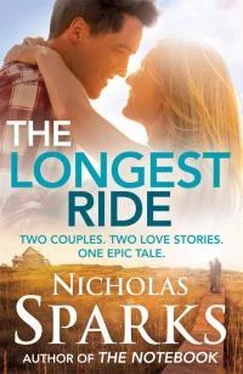


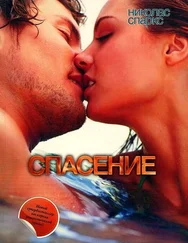


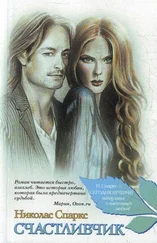

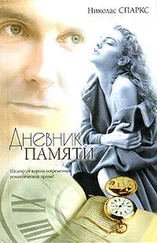
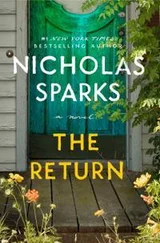
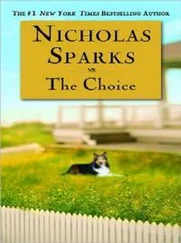
![Николас Спаркс - Каждый вдох [litres]](/books/414723/nikolas-sparks-kazhdyj-vdoh-litres-thumb.webp)
